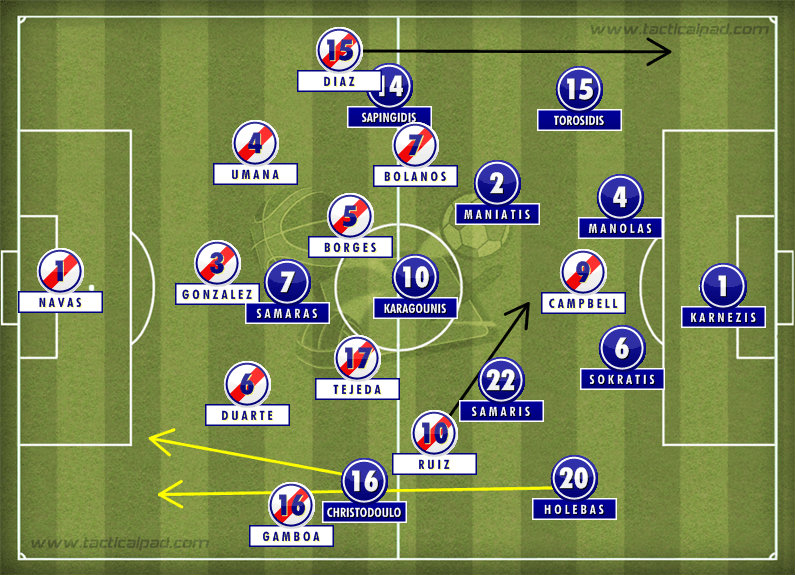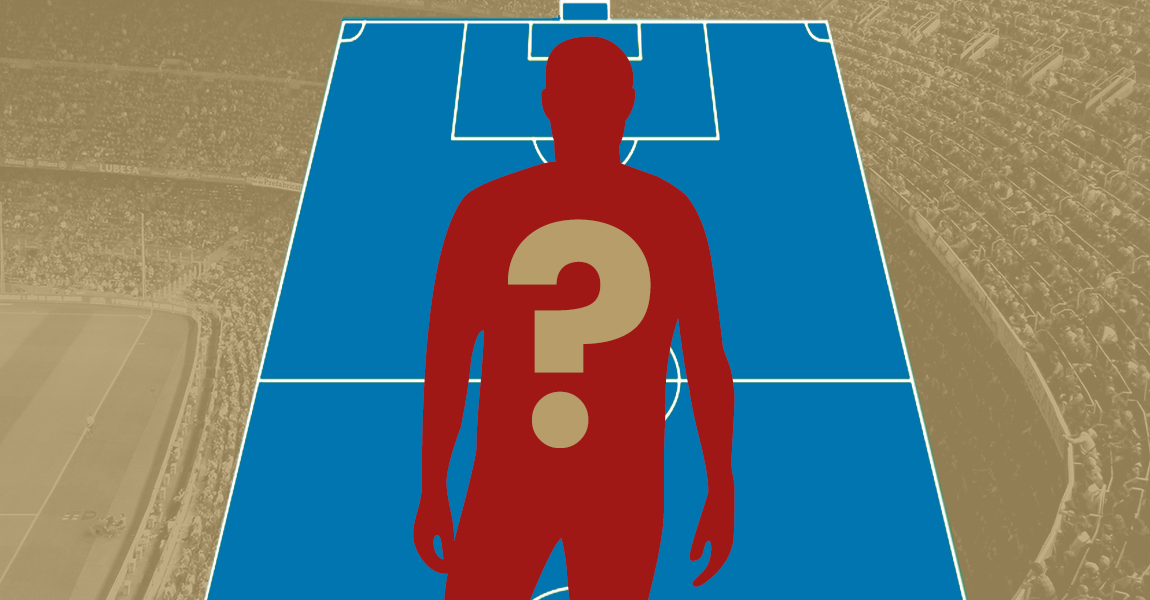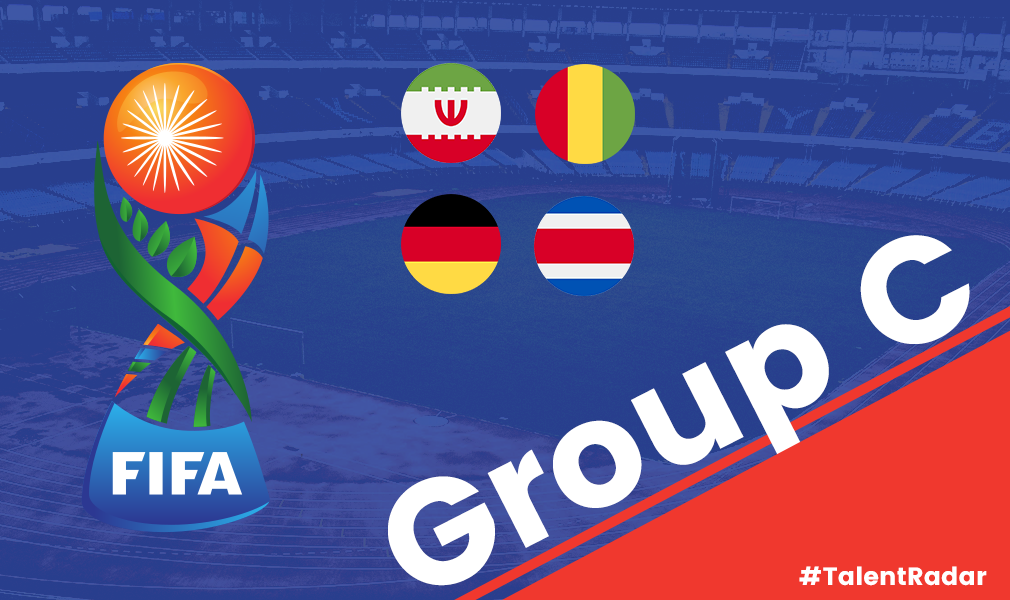A second-half sending off, a last-minute Greece equalizer and an extra-time fusillade to go on to penalties were not enough to hinder Costa Rica’s dream run to the quarter finals. Backed by five turbulent spot-kicks from his team-mates, Levante stopper, Keylor Navas ensured his tiny Central American nation will take part in their first ever World Cup quarter-final, despite playing for virtually an hour with a man down. They retorted to misery having been seconds from victory before Sokratis Papastathopoulos emerged unmarked to keep the Greeks in the contest with an injury time goal which nullified the opener scored by Bryan Ruiz. Greece seemed sure to win from this point but Costa Rica dug in, rode their luck it has to be said, relied on their brilliant goalkeeper to play out extra time and triumphed on penalties.
Formations & Line-ups
Costa Rica (5-4-1): Keylor Navas, Júnior Díaz, Michael Umaña, Giancarlo González, Óscar Duarte (Sent Off 66’), Cristian Gamboa (Acosta 76’), Christian Bolaños (Brenes 84’), Celso Borges, Yeltsin Tejeda (Cubero 66’), Bryan Ruiz, Joel Campbell.
Greece (4-2-3-1): Orestis Karnezis, José Holebas, Sokratis Papastathopoulos, Kostas Manolas, Vasilis Torosidis, Andreas Samaris (Mitroglou 57’), Giorgos Karagounis, Giannis Maniatis (Katsouranis 78’), Lazaros Christodoulopoulos, Georgios Samaras, Dimitris Salpingidis (Gekas 69’).
Goals: Ruiz 52’; Sokratis 91’
Shootout: Borges, Ruiz, Gonzalez, Campbell, Umaña; Mitroglou, Christodoulopoulos, Holebas
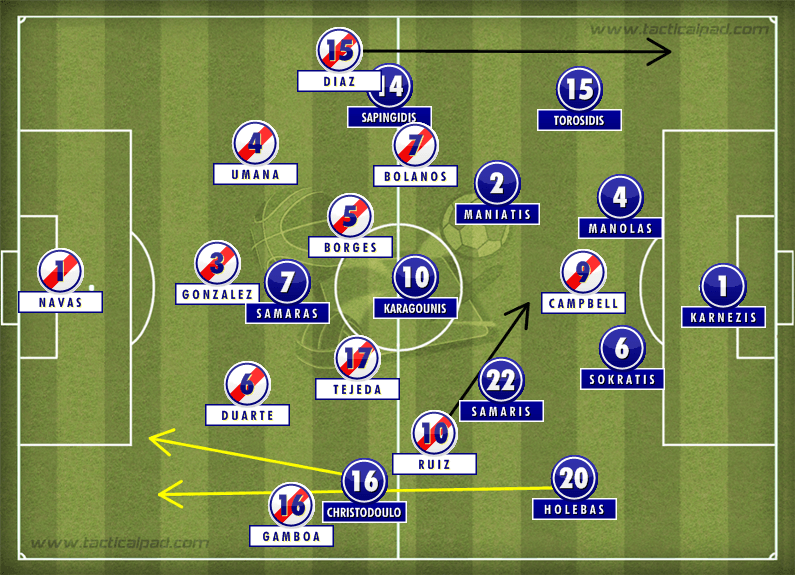
ANALYSIS
Basic Setup
Greece began the game sitting slightly deeper with the Ricans retaining possession of the ball in the early stages of the first half. In the attacking third, Costa Rica’s wing-backs act as essentially supplementary wingers. The centre-backs then sweep out to become full-backs themselves and the holding player drops into that central space to offer cover and dispense the ball from deep.
But Costa Rica’s 5-4-1 depends heavily on a striker to get on the end of the crosses provided by the wing-backs, and in the first half Campbell was moving all around the place, working hard but playing pretty much everywhere except as an out-and-out striker.

Heat Maps: Campbell not spending any time inside the box, Samaras leading the line for Greece | via Squawka
This was in contrast to Samaras, who was providing an expedient outlet for his well-structured side. Greece looked the more compac tunit in midfield. Tejeda, one of Costa Rica’s weaker performers in this tournament so far, had a reasonably inept game, and despite Greece only achieving 40% possession in the first 40 minutes (stat via FourFourTwo) they were gratified to remain solid defensively.
Holebas’ runs troubling the defence
Greece’s performances this tournament have brought into limelight Jose Holebas’ true form & abilities: a blisteringly swift, explicit aggressive option who’s crucial on the counter. A little ineffectual defensively, he was the weak link that the Colombians targeted in their win over Greece in the first game. But against the Los Ticos, he caused all sorts of nuisances, making his brawl with right-wing-back Gamboa a potential crowd-pleaser. Holebas’ evident threat down the left restricted Gamboa’s overlapping runs, who had to fall back and take charge of his defensive duties on most occasions. Holebas delivered 16 crosses into the box vis-à-vis Gamboa’s miser tally of 5.
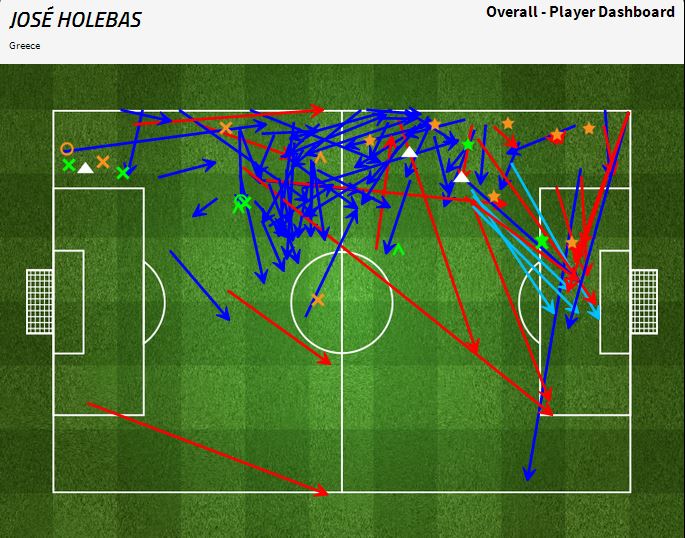
Holebas runs | via FourFourTwo
A man down, with a goal to defend
Duarte’s second yellow in the 66th minute was the turning point of this fixture. Pinto tried to streamline his defence while Fernando Santos brought on all the forwards he had on the bench. With 10 men, Costa Rica converted to a four-man defence and, energy resources diminishing, came to a resolve. They would sit back in a 4-5-0 and cling on to the chance of creating history – with 25 minutes remaining. Tactical alterations from both managers led to a massive change in the tempo of the game. Costa Rica’s number of passes completed plunged intensely as the whole team withered. In attack Campbell seemed like a nonentity – a shell of a man tottering about completely fatigued. There was little freedom to their play, despite the best endeavours of Ruiz, the only man left isolated high up the pitch. Greece were able to smother the game and turn it into a tale of slow destruction. Known for shutting a game down and amplifying any flash of a chance that comes their way, they made the extra man count & built up enough pressure towards the end of the game resulting in a goal.

Post-Sending off (66’-90’): CRC’s passing (66%) vs Greece’s passing (89%) | via Squawka
A similar trend was seen in extra time. The Costa Ricans could not produce a single shot on goal in the first half of the extra 30 minutes, while the Greeks continued to press only to be denied by the excellent Navas.
Key Player of the Match
Keylor Navas | With a defender sent off and the Greeks attacking with all guns blazing, up stepped the Levante shot-stopper with 7 saves out of the 8 shots he faced in the game as well as a penalty. He looked destined to keep the ball out of his net with a blend of proficiency and fate. Subject of multiple attacks with very little help from his defence, he made a succession of saves in the dying minutes of the 90’ to take the game to extra time and then to penalties.The first seven spot-kicks were confidently dispatched before Navas made his ultimate and pivotal contribution, saving from Gekas and leaving Umana to put Costa Rica through.
Where does this leave them?
Drawn in the Group of Death and least expected to surpass that stage, Costa Rica have emerged as the only team from their group to reach the quarter finals. The spirit of Luis Pinto’s team is far greater than its class and it will take some time to get over the strenuous sentiment and the muscle depleting consequences of 120 minutes in Recife’s heat. They will also be without defender Óscar Duarte in their quarter-final fixture against the Dutch on 6th July, after his red card. As for the Greeks, their manager, Fernando Santos, who was sent-off just before the shootout, is set to retire as his contract expires on Monday. They go home after a hard-fought battle, sinking in the penalty shootout to a match winning performance by Navas.




















































